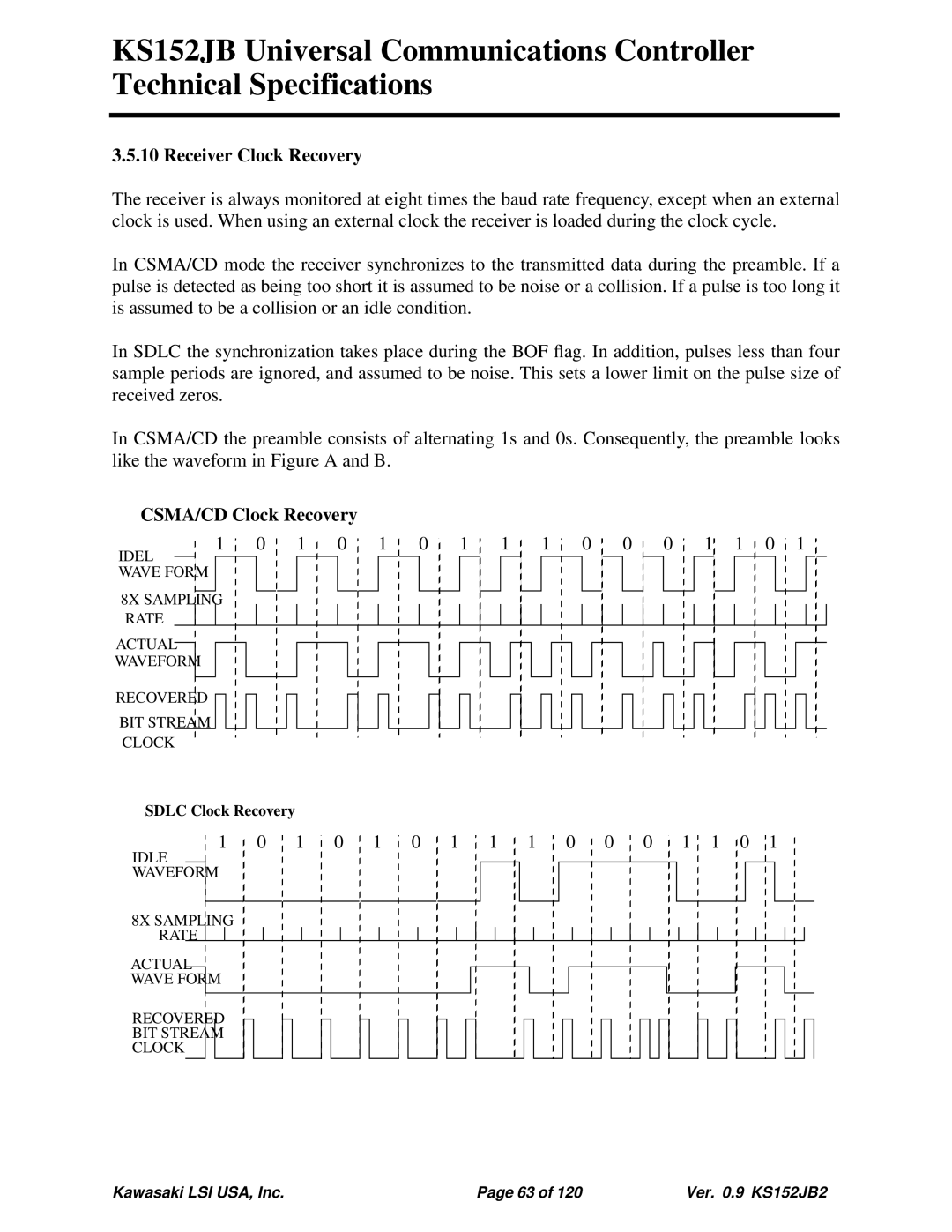
KS152JB Universal Communications Controller Technical Specifications
3.5.10 Receiver Clock Recovery
The receiver is always monitored at eight times the baud rate frequency, except when an external clock is used. When using an external clock the receiver is loaded during the clock cycle.
In CSMA/CD mode the receiver synchronizes to the transmitted data during the preamble. If a pulse is detected as being too short it is assumed to be noise or a collision. If a pulse is too long it is assumed to be a collision or an idle condition.
In SDLC the synchronization takes place during the BOF flag. In addition, pulses less than four sample periods are ignored, and assumed to be noise. This sets a lower limit on the pulse size of received zeros.
In CSMA/CD the preamble consists of alternating 1s and 0s. Consequently, the preamble looks like the waveform in Figure A and B.
CSMA/CD Clock Recovery
1 | 0 | 1 | 0 | 1 | 0 | 1 | 1 | 1 | 0 | 0 | 0 | 1 | 1 | 0 | 1 |
IDEL
WAVE FORM
8X SAMPLING RATE
ACTUAL
WAVEFORM
RECOVERED
BIT STREAM
CLOCK
SDLC Clock Recovery
1 | 0 | 1 | 0 | 1 | 0 | 1 | 1 | 1 | 0 | 0 | 0 | 1 | 1 | 0 | 1 |
IDLE
WAVEFORM
8X SAMPLING RATE ![]()
![]()
ACTUAL
WAVE FORM
RECOVERED
BIT STREAM
CLOCK
Kawasaki LSI USA, Inc. | Page 63 of 120 | Ver. 0.9 KS152JB2 |
